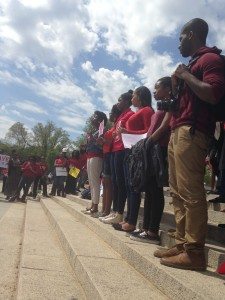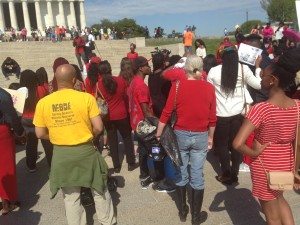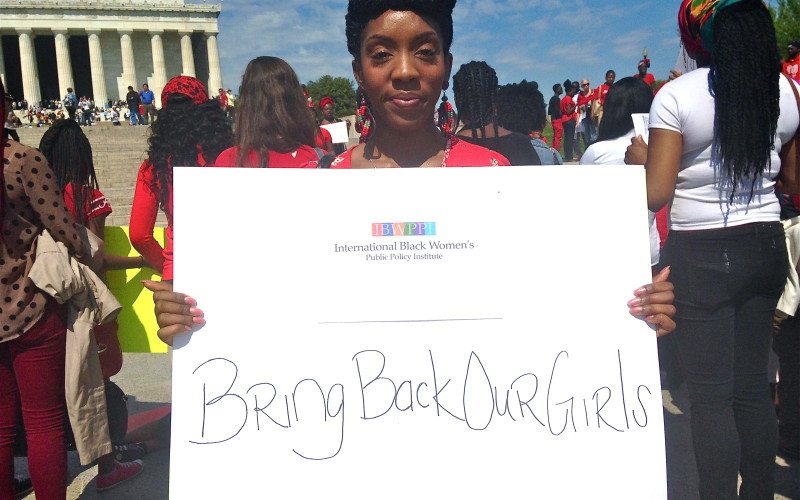It seems like the whole world has taken notice to the tragedy that has struck Nigeria.
I can’t believe it’s been nearly four weeks since more than 276 Nigerian girls were taken by Boko Haram militants from their boarding school. The story has captured the attention of thousands of Americans and people across the world. It’s become of movement of justice and bring the girls back.
Recently, hundreds of people from across the D.C. area and myself gathered in front of the Lincoln Memorial to protest for the girls, and to show our support for the situation. As many look for hope and the girls, I believe all of us around the world must take a stand and show our support in hopes of getting them back home to their loved ones.

Rice: ” believe all of us around the world must take a stand and show our support in hopes of getting them back home to their loved ones.” (Photo courtesy of Ebonee Rice)
Here are four reasons why the #BringBackOurGirls Movement is so important to me.
FOUR. That’s the number I gave when asked why the #BringBackOurGirls movement is important to me. I have four reasons: Tonejah, Ashlee, TeJanna and Alicia. My nieces represent the scores of missing Nigerian schoolgirls, and I represent the families still waiting on news of their whereabouts. I wish I could say that my mind immediately when into action-mode when I first heard the news, but it didn’t.
Instead, I thought about my four nieces. I thought about the millions of girls enslaved throughout the world. I wondered, what if there were only four missing girls? Would I ever have heard of them? What about blackness disqualifies it from being worthy of justice? Those are just a few questions that bounced around in my mind. Whatever the case, #BringBackOurGirls is a four-word, grassroots movement that transcends ethnicity and citizenship. It replaces the four-letters h-a-t-e with the four-letters h-o-p-e.
THREE. That’s the number of hours we rallied in D.C., peacefully standing with our Nigerian sisters. From one cloth we came, white and black skin together chanting #BringBackOurGirls. The most beautiful thing about the rally in our nation’s capital was that it brought together people from all backgrounds and national identity. In a public outcry, we combined our voices on behalf of our girls. We claimed them as our daughters/sisters/friends. We addressed a systemic issue that is much bigger than the right now, but relevant at the same time. We did this in three hours. And there are many more hours of work to do.
TWO. That’s the number of times I’ve been asked, “What’s the price of girls in Nigeria?” How can you commodify someone’s daughter? The blissful ignorance of this question didn’t anger me. It saddened me. Femininity should not be for sale, and blackness should not just disappear.

Rice: “The most beautiful thing about the rally in our nation’s capital was that it brought together people from all backgrounds and national identity.” (Photo courtesy of Ebonee Rice)
ONE. That’s the number of races on Earth—the human race. This global fight proves that fact. What’s more? We won’t stop fighting and praying until every girl is reunited with her family. Even if there were only one girl missing, we would still beat our drums because #BringBackOurGirls has taught us that sometimes noise is our only weapon.
Please keep showing your support until they are brought home as I will do the same.








